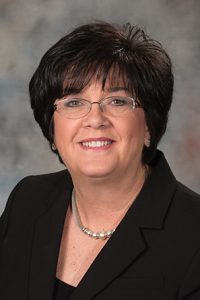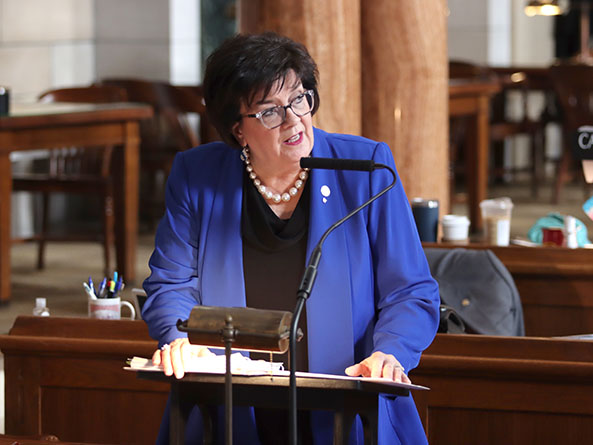Abortion ban pulled from committee
A bill that would ban all abortions in Nebraska if states are given full regulatory authority over the procedure was placed on general file March 25 after a successful procedural motion.

LB933, introduced by Thurston Sen. Joni Albrecht, would become operative contingent upon one of the three national “triggering” events: if the U.S. Supreme Court overturns Roe v. Wade, Congress enacts a law giving states complete authority to regulate abortion or the U.S. Constitution is amended to give states that authority.
The bill would prohibit both medical and chemical abortions starting at fertilization with no exception for cases of rape or incest. A physician who knowingly violates the bill’s provisions would be subject to a Class IIA felony charge, which carries a maximum penalty of 20 years imprisonment.
A physician charged under the bill’s provisions could claim a defense that the procedure was necessary to prevent a woman’s death. A woman who attempts or has an abortion would not be liable under the bill. Medical treatment provided by a licensed physician that results in accidental death or injury of an unborn fetus also would not be a violation.
Albrecht filed a motion to place the bill on general file, even though the Judiciary Committee has not voted to advance it.
She said the state is facing a “historic moment” that requires action from lawmakers. More than 200,000 abortions — a number equal to approximately 10 percent of the state’s population — have occurred in Nebraska since Roe v. Wade was decided in 1973, she said.
“Pull motions should indeed be rare, but they are allowed under our rules for a purpose,” Albrecht said. “[LB933] addresses a statewide issue with broad public support and the committee has declined to either advance or kill the bill. It has been 43 days since the bill hearing for LB933 in the committee.”
Norfolk Sen. Michael Flood spoke in support of the motion to pull the bill from committee. Nebraska is a pro-life state, he said, and the Legislature has a significant historical investment in protecting the lives of the unborn.
“While I’m not someone who is normally fond of pull motions — this is an issue that has been tearing at the hearts of Americans since Roe v. Wade was decided,” Flood said. “This rises to the level of an issue that we must address.”
Sen. Dave Murman of Glenvil also spoke in favor of the motion, saying it is important for bills to be debated by the full Legislature and for Nebraskans to provide input to their senators on how to vote.
“The committee process works in most cases. But sometimes, the committees are set up so they don’t reflect very closely at all what the makeup of the Legislature is,” Murman said. “In that case, I think the pull motion is very valuable because the people of Nebraska need to know where their senators stand on the most important issues.”
Omaha Sen. Megan Hunt spoke in opposition to the motion. Hunt said the purpose of the committee process is for members to become experts in the subject matter that comes before the committee. Pull motions subvert that process, she said.
“In the last four years, we’ve seen this motion used time and time again to subvert the committee process to move radical, anti-women, anti-family [and] anti-choice bills through this Legislature in ways that the majority of Nebraskans just don’t agree with,” Hunt said.
Sen. John Cavanaugh of Omaha also spoke in opposition to the pull motion, saying the procedure should be reserved for addressing urgent matters. LB933 would not meet that standard because it is a “trigger” bill, he said, and would take effect only if the U.S. Supreme Court gives states sole authority over the procedure.
“The argument to pull a bill to the floor, to be debated and to be voted on by this body — that will actually have no effect unless certain circumstances happens — does not seem to meet the standard of a pull motion,” Cavanaugh said.
Senators voted 28-13 to adopt the motion to advance LB933 to general file. A majority vote of the Legislature was required.


